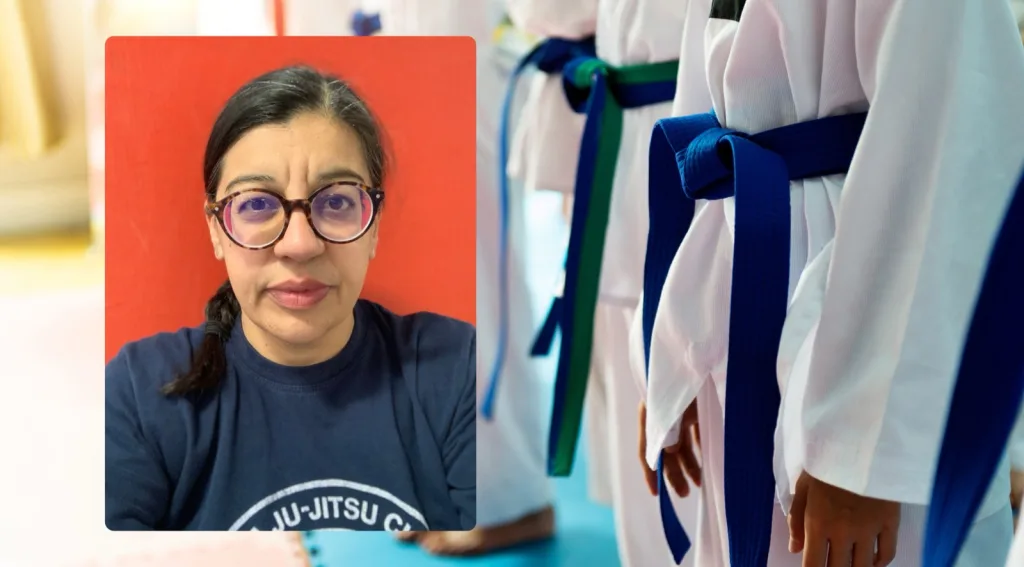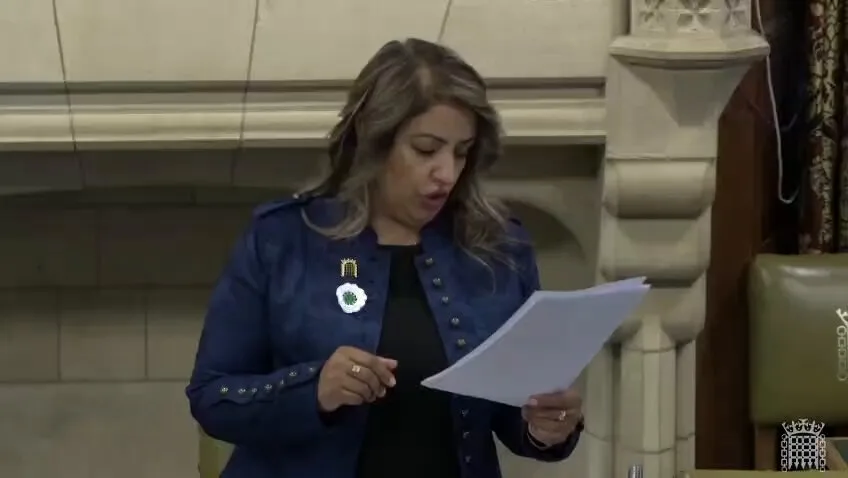
Britain’s ju-jitsu governing body is at the centre of a storm after dismissing a whistleblower’s complaints of racism and bias as “wholly unfounded and vexatious”.
The British Ju-Jitsu Association GB (BJJA GB) is accused of trying to silence Sensei Mumtaz Khan, a respected instructor who has fought for years to expose what she says are deep-rooted problems in the sport.
Mumtaz first raised concerns in 2018 after a refereeing decision at the British Championships, but her case quickly grew into something larger.
She highlighted what she believed were systemic barriers facing women and ethnically diverse athletes, and challenged the way her role as diversity engagement officer was undermined. Instead of support, she says, she met resistance and silence.
Earlier this year, her persistence reached Westminster, where Bradford West MP Naz Shah blasted the BJJA GB as a “fiefdom” and warned that its culture of secrecy was damaging trust in the sport.
Sport England was also forced to step in. In 2023 it warned the BJJA GB it could be stripped of official recognition. The body survived only by agreeing to strict conditions, including the creation of a diversity working group and promises of cultural change.
Mumtaz’s persistence has also been acknowledged by Sport England, which launched a governance review and for months threatened to strip the BJJA GB of its official status.
BJJA’s conduct questionable
Asian Express newspaper’s recent investigation asked fresh questions about BJJA GB’s conduct, and about historic Facebook posts shared by chair Martin Dixon that included nationalist slogans, attacks on foreign aid and offensive “jokes” – the BJJA GB did not engage. Instead, it doubled down.

In response to Asian Express, the BJJA GB reiterated that Mumtaz’s allegations had been “exhaustively investigated” and “conclusively resolved” years ago.
“The findings concluded that Mumtaz’s claims were wholly unfounded and vexatious,” the BJJA GB said.
“Her ongoing efforts, including enlisting support from third parties, appear intent on causing disruption and reputational harm, despite the fact that the matter has been formally and definitively closed for some time.”
Such language is extraordinary and deeply unprofessional for a national governing body.
To brand a complainant “vexatious” in an official statement, especially one whose concerns have been raised in Parliament and examined by Sport England, sends a chilling signal to whistleblowers across sport.
It risks silencing those who might come forward with experiences of racism or discrimination, and suggests a culture more concerned with protecting reputations than addressing problems.
The BJJA GB has repeated this line before. In a past public statement, the association again described Mumtaz’s claims as “wholly unfounded and vexatious” and noted she had taken her concerns to Sport England, her MP, and the media. It argued the matter was settled internally by its own disciplinary panels.
“In response to this broader scrutiny, Sport England conducted a governance review and identified specific areas for improvement. We took this feedback seriously and worked collaboratively with Sport England to strengthen our internal processes and frameworks,” the BJJA GB said.
But critics say such responses expose the heart of the problem: an organisation that sees complaints not as an opportunity to listen and reform, but as an attack to be repelled.
Mumtaz Khan and MP Naz Shah have a fresh meeting scheduled in Parliament to take up the matter with Minister for Sport, MP Stephanie Peacock MP Minister on Monday 3rd November.
Questions unanswered
In light of these developments, questions were put to the BJJA GB about:
- Whether Chair Martin Dixon accepts responsibility for Facebook posts he shared in 2016–17 that included nationalist slogans, and anti-foreign aid rhetoric
- What action the BJJA has taken to address racism claims and discrimination complaints from athletes such as Mumtaz.
- How the organisation measures progress on diversity and inclusion beyond policy statements.
- What milestones have been achieved under the conditions set by Sport England.
- The association declined to address the questions directly.
Timeline: The BJJA Dispute
- 2018 – Sensei Mumtaz Mumtaz lodges a complaint with BJJA GB over biased refereeing and raises wider concerns about discrimination and governance.
- 2019–2022 – Mumtaz pursues her case through BJJA GB internal panels and external bodies. The BJJA GB labels her claims “unfounded.”
- August 2023 – Sport England and the other home nation sports councils warn BJJA GB that it faces de-recognition as the sport’s national governing body unless governance standards are met.
- May 2024 – Sport England conditionally continues recognition of BJJA GB, requesting,: A public statement committing to cultural change; Creation of an Equality, Diversity & Inclusion (EDI) working group; Collaboration with external mentors on inclusion.
- May 2025 – Sport England says the British Ju Jitsu Association (BJJA GB) has “met several conditions imposed upon it by the Home Country Sports Councils so will continue to be recognised as the national governing body for ju jitsu in the UK”.
- July 2025 – MP Naz Shah raises the issue in Parliament, accusing BJJA GB of acting like a “fiefdom” and failing to deal with discrimination.
- July 2025 – BJJA GB issues a statement dismissing Mumtaz’s allegations as “vexatious” and closed, sparking renewed criticism over its tone and professionalism.










